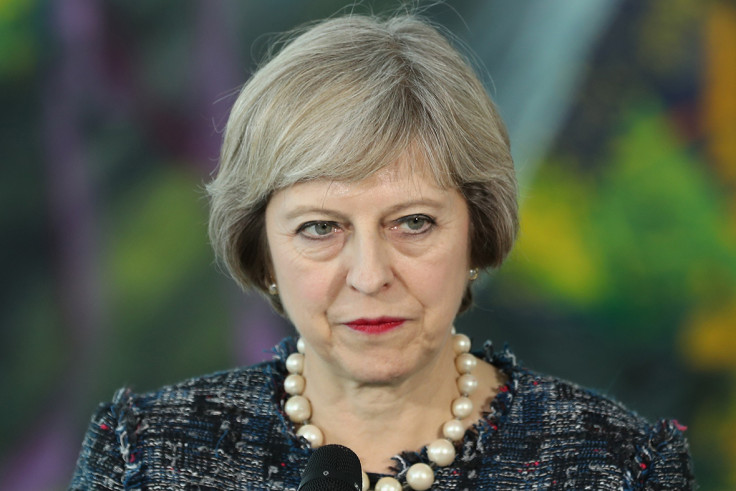Theresa May reveals UK will seek a transitional Brexit deal with the EU
British prime minister told MPs that the arrangement would be needed to help businesses adjust.

The UK government will attempt to secure a transitional deal with the EU as part of its Brexit negotiations, Theresa May confirmed on Tuesday (20 October).
The prime minister made the admission as she faced the influential House of Commons' Liaison Committee, which is chaired by Conservative MP Andrew Tyrie and made up of the heads of the Commons' select committees.
May told the group that a transitional agreement would be needed for UK businesses to adjust to "simple practical matters", such as changing IT systems, but warned that such a deal should not be used to scupper Britain's exit from the EU.
The comments come after Brexit Secretary David Davis and Chancellor Philip Hammond hinted that the government would seek a transitional deal, the later describing such an agreement as "helpful".
The prime minister also said she welcomed Nicola Sturgeon's "contribution to the debate" just hours after the First Minister of Scotland published her government's Brexit plan.
Sturgeon's proposal called for Whitehall to seek a Norway-style deal with the EU in a bid to keep Scotland's full access to the bloc's single-market.
The SNP leader warned May that she could seek a second Scottish independence referendum if the arrangements are not sought by Westminster.
"I don't think there is a need or reason for the Scottish Government to hold another independence referendum, I think the Scottish people gave their view in the referendum in 2014," the prime minister argued.
"But I would go further than that and make this point: If Scotland were to become independent, then not only would it no longer be a member of the EU, it would no longer be a member of the single-market of the EU, and it would no longer be a member of the single-market of the UK."
May also said she expected the Welsh Government and Northern Ireland Assembly to provide their own Brexit plans in the near future.
As for the UK government's own Brexit plan, promised after MPs backed a Labour "clarity" motion in the Commons earlier in December, May refused to give the Committee a timetable.
"I haven't set a date for when the [Brexit] plan will be published," she said. The comments come after Davis said the plan would not be published before February 2017, just a month before May has promised to invoke Article 50, the mechanism to split from the EU.
Our Chair @hilarybennmp has been pressing the PM on when she will publish her #Brexit plan pic.twitter.com/fgVRVFhmZp
— Exiting the EU Cttee (@CommonsEUexit) December 20, 2016
A vote for MPs?

May also failed to promise that MPs would have a vote on the government's Brexit negotiations, despite the EU Parliament having a say on the issue.
MPs and peers will have an opportunity to "comment and discuss" the UK's Brexit deal, May said.
"There seems to be this idea that somehow we're not letting Parliament do anything," she later added.
"I mean we've made statements to parliament, we've had debates in parliament, there will be the Great Repeal Bill, there's a whole variety of commitments that we have given to parliament...we will make sure that parliament has the opportunity to discuss these matters as we go through the negotiations.
"But what we will not be doing is setting out in detail on an hour-by-hour basis a running commentary of which aspects of the negotiations we are discussing...we need to have that flexibility as a government to be able enter into those negotiations on that basis."
Elsewhere, the prime minister told the committee that she did not expect her government to seek an extension to the two-year-long negotiating period with the EU.
The EU's chief Brexit negotiator Michel Barnier has said he expects talks to be concluded in October 2018 and ratified in March 2019.
"We are entering uncharted waters," the French politician warned. "The work will be legally complex, politically sensitive and it will have important consequences for our economies and people on both sides of the [English] Channel."
The High Court ruled in November that MPs must have a vote on invoking Article 50. The government appealed the decision at the Supreme Court in December, with a final ruling expected in January 2017.
© Copyright IBTimes 2025. All rights reserved.





















